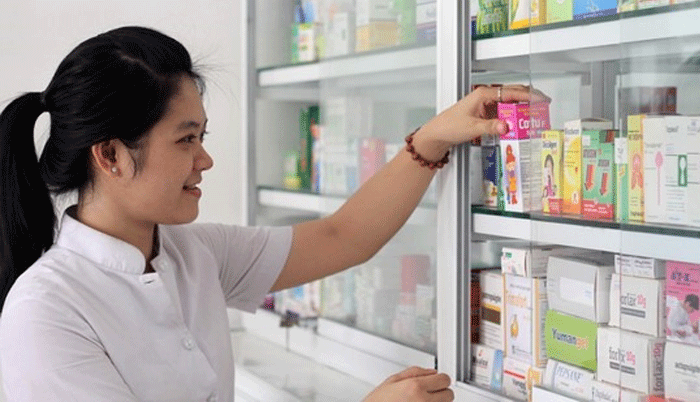![]() Home > Vietnam
Home > Vietnam
More Efforts To Combat AMR, WHO Urges VN

Việt Nam is in the list of countries with a high AMR rate due to insufficient awareness on antibiotic and AMR in community and health workers. — Photo thuocantoan.com.vn
![]() December 1st, 2016 | 07:51 AM |
December 1st, 2016 | 07:51 AM | ![]() 1100 views
1100 views
HÀ NỘI
World Health Organisation (WHO) Representative to Viet Nam Lokky Wai has called on Việt Nam to undertake more efforts to combat antimicrobial resistance (AMR).
“The most important factor that contributes to the rise of AMR is the use of antibiotics in humans and animals. Therefore, the most effective measure the government can take is to control the use of antibiotics and ensure they are used appropriately,” Wai said at a meeting to mark Việt Nam Antibiotic Awareness Week 2016 today in Hà Nội.
Wai said the increase of antibiotic production, supply and use had contributed to the spread of AMR in the environment and food chain due to the increasing pressure to meet the global food demand of people and international trade, along with industrialisation urbanisation and expansion of the health services sector.
“The role of other sectors, such as trade, industry, environment and natural resources, are therefore important to complement regulatory actions and closely monitor the spread of AMR in the food chain and environment,” Wai said.
“The inter-sectoral action undertaken in Việt Nam is, therefore, a step in the right direction and is an excellent example for other countries in the region. By committing to work together, Việt Nam is making a great contribution to the global fight against AMR,” the WHO representative added.
“Last year, we had 400,000 individuals pledging to help fight AMR. We will continue to gather more pledges until we reach the one million mark to demonstrate the public’s support in building a healthy, safe and progressive Việt Nam,” Wai said.
Speaking at the meeting, Lương Ngọc Khuê, the health ministry’s Health Examination and Management Department director, said antimicrobial resistance is a risk to Việt Nam’s people and economy following the increase in antibiotic use and weakness in antibiotic management in healthcare and animal husbandry, especially the issue of antibiotic resistance in the food chain and ecological environment.
Việt Nam was in the list of countries with a high AMR rate due to insufficient awareness on antibiotic and AMR in community and health workers. Many residents purchased and used antibiotics without a doctor’s prescription or overused the latest antibiotics prescribed by doctors. Excessive use of antibiotics in animal and aquaculture production was also a reason for the increase of AMR in the country, according to Khuê.
The annual week, titled "Together and Stronger against AMR," aims to increase awareness of global antibiotic resistance and to encourage best practices among the general public, health workers and policy makers to avoid further emergence and spread of antibiotic resistance.
According to WHO, AMR results in some 700,000 global deaths per year. By 2050, the number of deaths attributed to AMR is estimated to be 10 million per year, more than the estimate for cancer and 10 times more than the estimate for diabetes.
Studies have shown that a continued rise in resistance by 2050 will lead to a reduction of up to 3.5 per cent of GDP and will cost the world up to US$100 million. — VNS
Source:
courtesy of VIET NAM NEWS
by Viet Nam News
If you have any stories or news that you would like to share with the global online community, please feel free to share it with us by contacting us directly at [email protected]